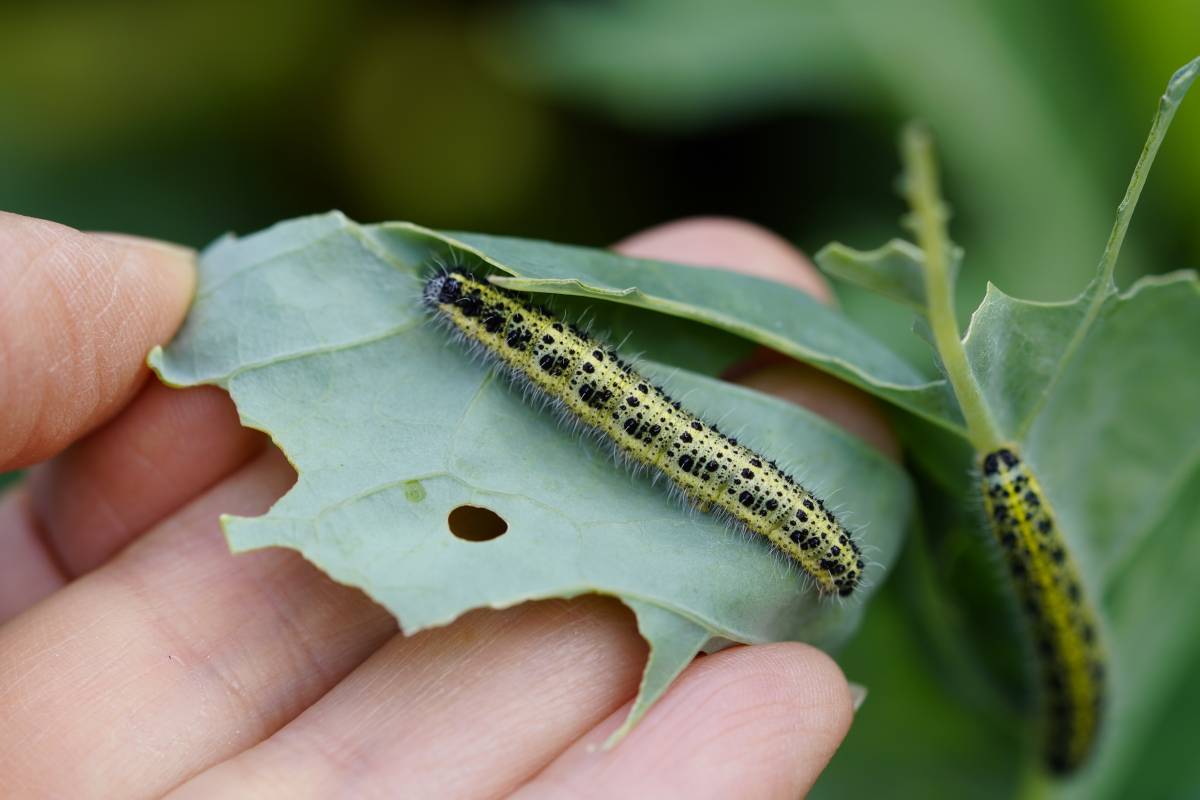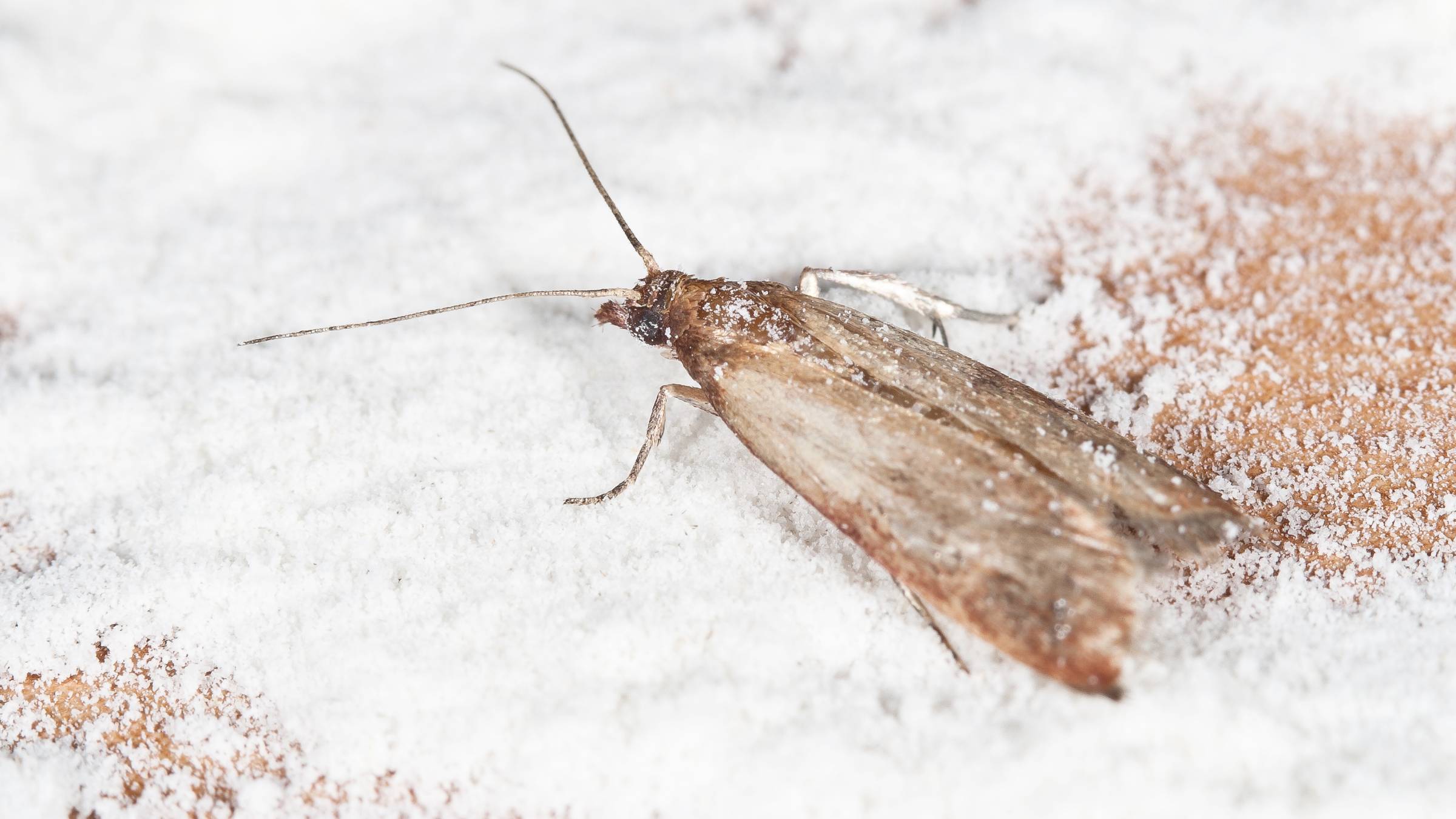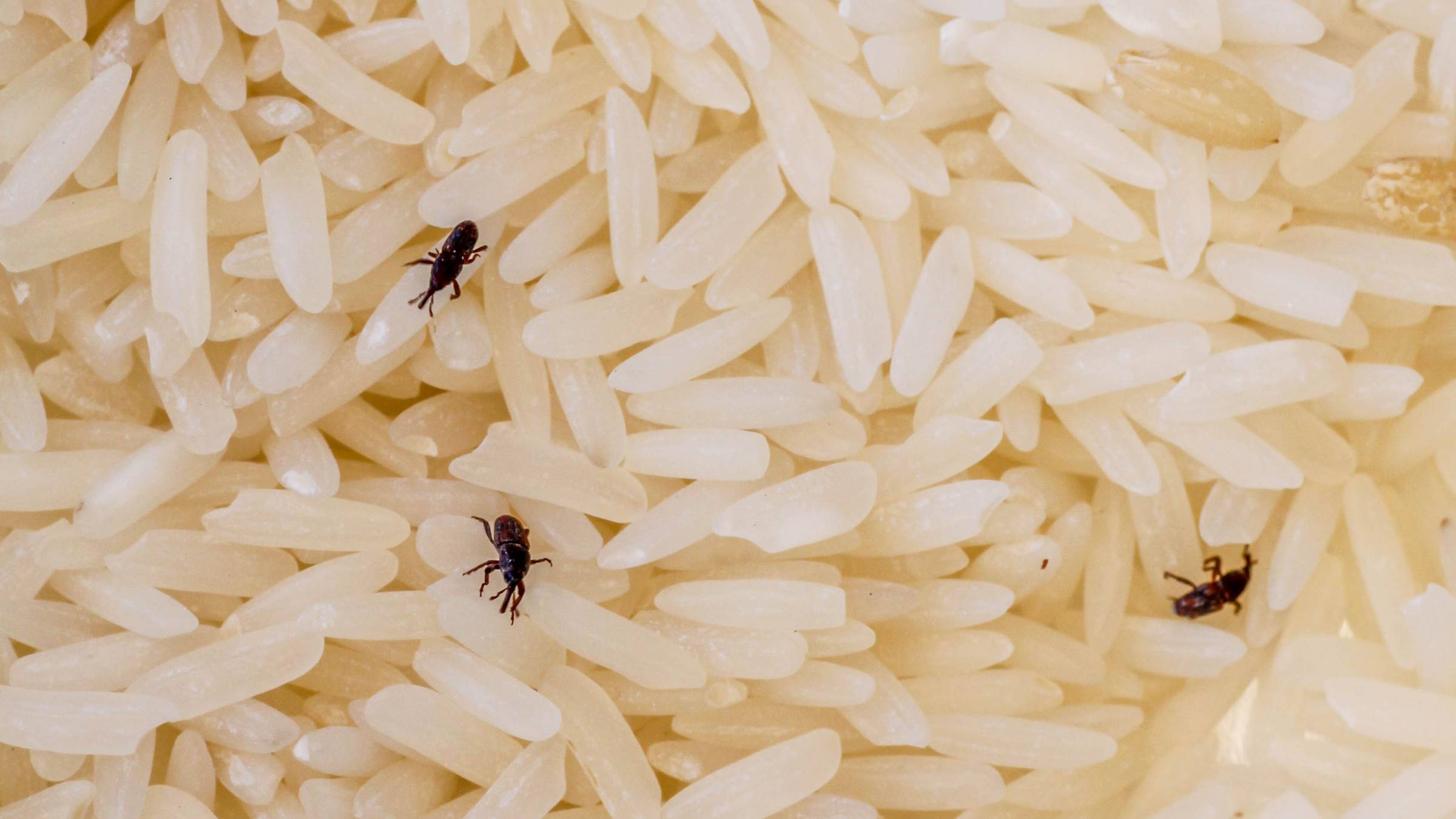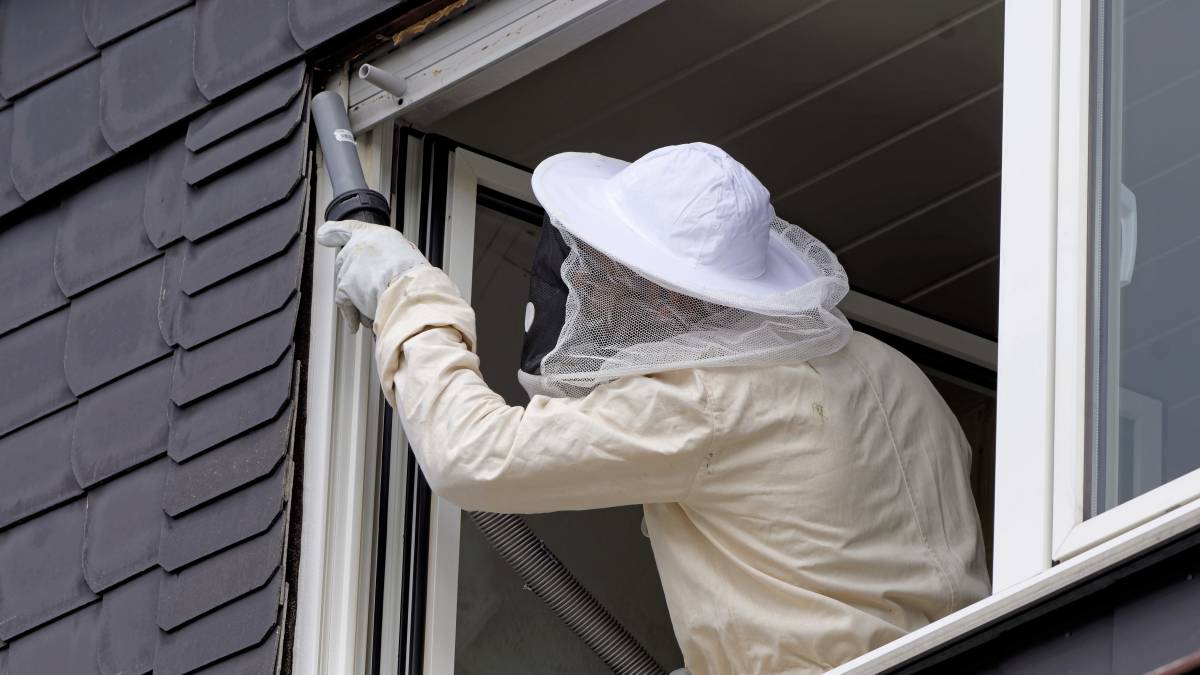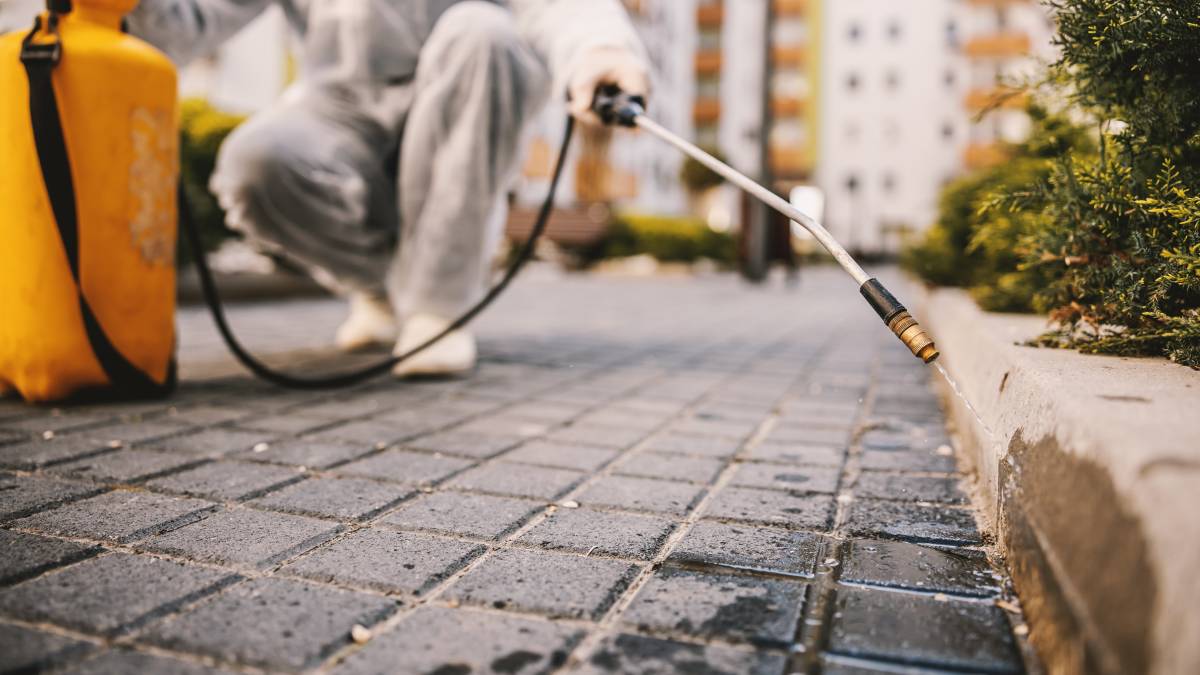- Home/
- Guides/
- Pest Control/
- How to Get Rid of Rats in the Garden
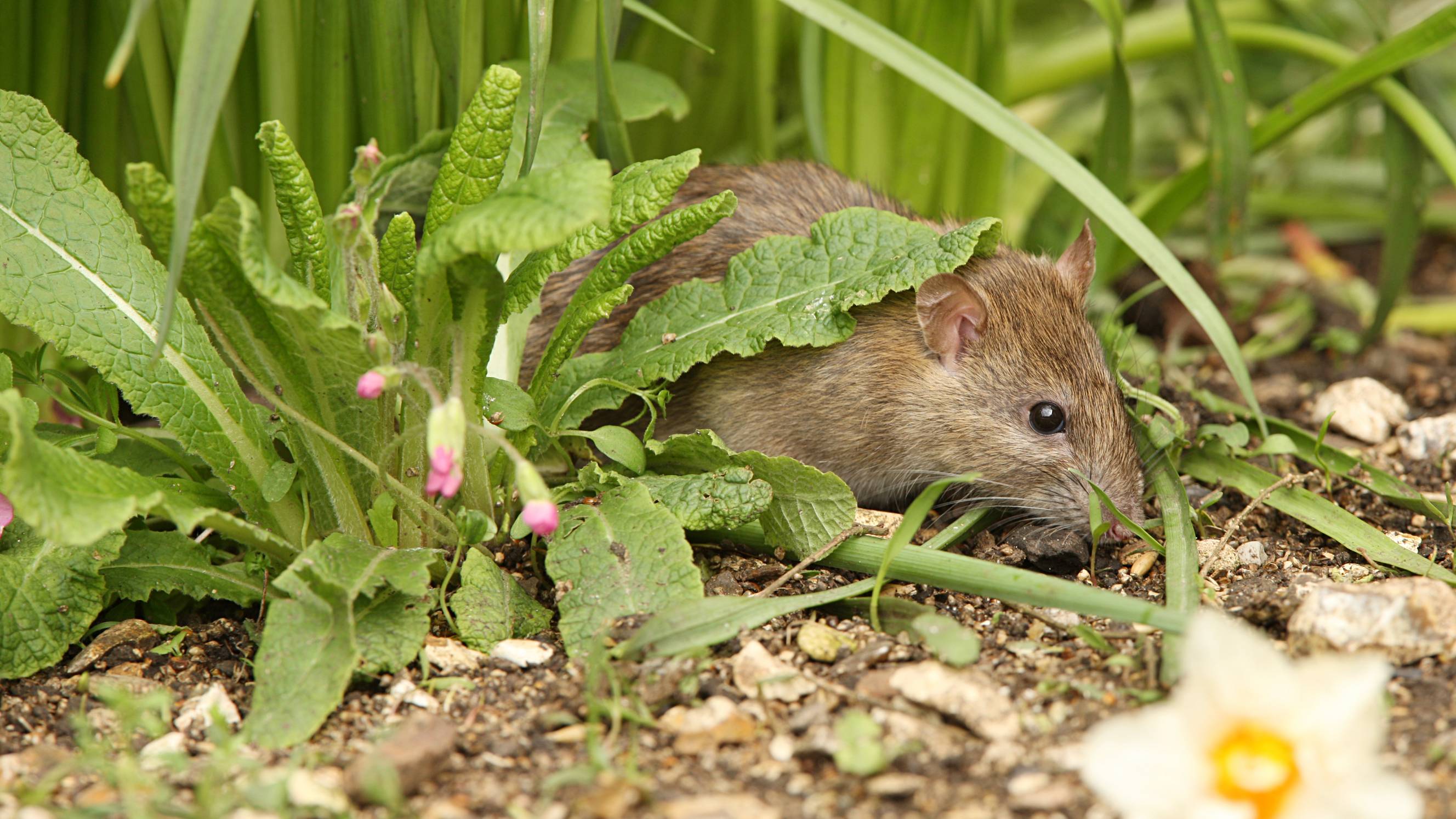
Rodent roundup: How to get rid of rats in the garden
Practical solutions for those facing a garden rat infestation
Hire a pest control expertLast Updated on
Key Facts
- You can get rid of garden rats by cutting off their food and water sources, using rat deterrents and rodenticides, placing traps, and having cats on your property.
- You can prevent another infestation by sealing their possible entry points, tidying up your outdoor space, conducting inspections regularly, and encouraging your neighbours to do the same.
A garden can be a wonderful place for relaxation and socialisation. However, it can quickly turn into a source of gripes and headaches if rats start using the area for their own pleasure and survival. Not only will your property be at risk of damage—your health and overall well-being might become negatively affected as well.
If you’re currently experiencing this problem (like the 220 Brits who filed vermin complaints), read this guide on how to get rid of rats in the garden and prevent them from coming back.
Why are rats attracted to gardens?
According to a prominent insurance company, over 270,000 pest control visits to rodent-infested homes took place in the UK in 2023. This clearly shows that various features in a British house—including its garden and other outdoor areas—attract rats.
For instance, gardens can be an excellent source of water and food. But what do rats eat in the garden? This can range from kernels from bird feeders and edible plants to pet food and morsels from compost heaps.
Gardens can also offer shelter and protection from predators, especially if there is a run-down shed that rats can enter, a ton of overgrown shrubbery, piles of wood, and an accumulation of junk.
What are some signs of a garden rat infestation?
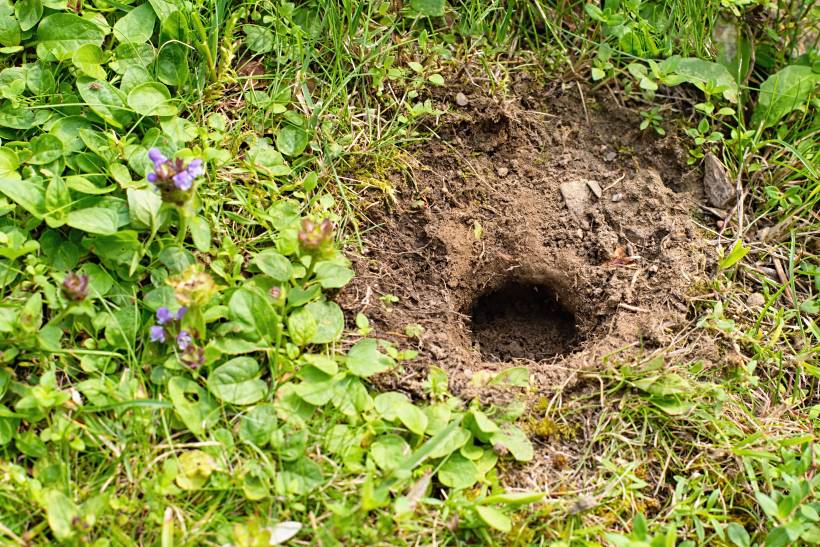 A small hole in the ground potentially leading to a rat nest (Source: iStock)
A small hole in the ground potentially leading to a rat nest (Source: iStock)
The telltale signs of rats in a garden include:
Vegetation damage;
Bite marks;
Squeaking and scratching noises;
Tiny footprints;
Small mounds or burrows;
Unusual odour; and
Rat nest-looking objects.
But what does a rat’s nest look like in the garden? It is different from the nests of wasps, birds, or squirrels. A rat’s nest looks like balled-up fluff that is four to six inches long and made of materials like paper, fibres, cardboard, leaves, twigs, and even pieces of plastic.
What problems do garden rats cause?
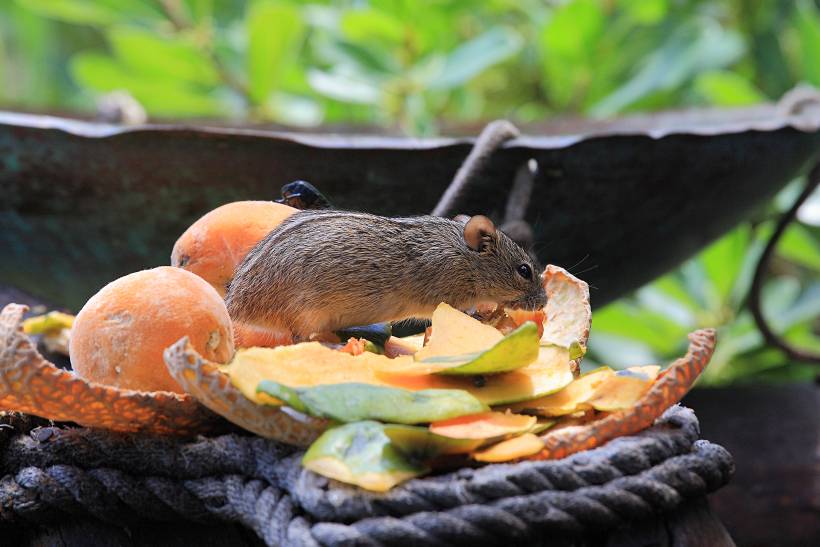 A garden rat feeding on leftover fruit (Source: iStock)
A garden rat feeding on leftover fruit (Source: iStock)
It is crucial to know how to prevent rats in the garden because they can bring trouble in different ways. On the surface, having rats in gardens may seem like a problem that only affects the appearance of your home’s outdoor area. However, these rodents can bring more serious harm, not just to your surroundings but also to your family and pets.
Human and pet disease
What diseases do rats carry in the UK? Rat-borne diseases, including leptospirosis, rat bite fever, and hantavirus, can be transferred to humans and other animals, such as dogs and cats. One is at risk of acquiring an infection after experiencing any of the following:
Having contact with rat fluids and waste
Inhaling rodent dander and garden rat droppings
Getting bitten by a rat
To minimise the chance of being infected, try to observe best practices when it comes to preventing rat diseases. If you think you may have contracted one, immediately seek professional care.
Plant damage
Are rats in the garden a problem if you grow your own plants? Yes. This is because garden rats love to gnaw on root vegetables, fruits, and nuts. This can consequently lead to significant damage to both growing plants and stored harvests, translating to lower crop quality and yield.
Ecological imbalance
A surplus of anything almost always leads to imbalance, and cases of rat infestation are no exception in this regard.
A garden’s rat population can easily balloon when no predators are around, such as wild birds and snakes. At the same time, because they attract pests like ticks and fleas, there is more risk of contracting infections like Lyme disease.
How do you get rid of garden rats naturally?
 A cat expertly hunting a rat in a garden (Source: iStock)
A cat expertly hunting a rat in a garden (Source: iStock)
How do you get rid of rats in the garden through natural means? Below are two methods you can try:
Utilising plants and herbs
Several plants can act as natural rat repellents. These range from fragrant herbs like lavender and mint to flowers like daffodils and chrysanthemums.
You can use these plants to deter rats by growing them directly on your garden’s soil or having them in pots. It is also possible, like in the case of onion, garlic, and chilli, to concoct a natural solution that you can spray around your garden.
Encouraging natural predators
The presence of cats can deter rats from gardens in different ways. Firstly, their scent can scare off rodents. Secondly, it is widely known that they can catch their prey with ease.
However, do be wary that your pet might contract an infection. Hence, it is important to prioritise their safety.
What are other ways to get rid of rats in the garden?
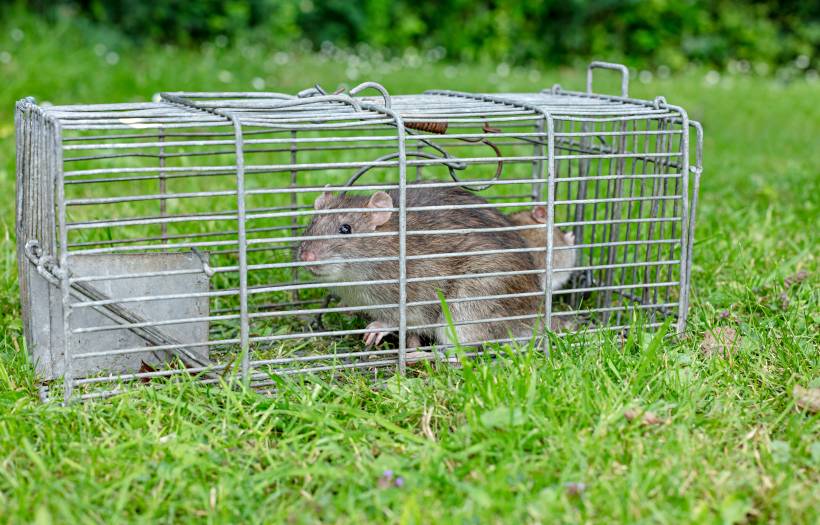 Two garden rats caught in a simple trap (Source: iStock)
Two garden rats caught in a simple trap (Source: iStock)
Here are more solutions to a rat problem in a residential property, which you can do either alone or with the help of someone else:
Placing traps strategically
Trapping rats in the garden is a short-term but economical solution. The most popular tools for this tried-and-tested method are snap, live-catch, and multiple-catch traps.
You can put or hide these low-maintenance implements in places where rats usually roam around, such as corners, walls, and fences. It is also ideal to have them in dark areas.
Using rodenticides responsibly
Rodenticides are chemicals that you can use to get rid of unwanted rats.
But is it safe to put rat poison in the garden? Like with other kinds of pesticides, you should be careful when using these garden rat repellents on your property since they contain chemicals that should not be ingested. Depending on the amount consumed, they can result in complications, such as neurological damage and even death.
Therefore, you should place them in bait stations that are inaccessible to children and pets. Moreover, do not put them near food intended for other animals.
Spraying ammonia in certain areas
Ammonia’s smell is similar to the odour of certain predators’ urine. As such, spraying an ammonia solution in or near the areas where rats stay might scare them off.
How do you prevent another garden rat infestation?
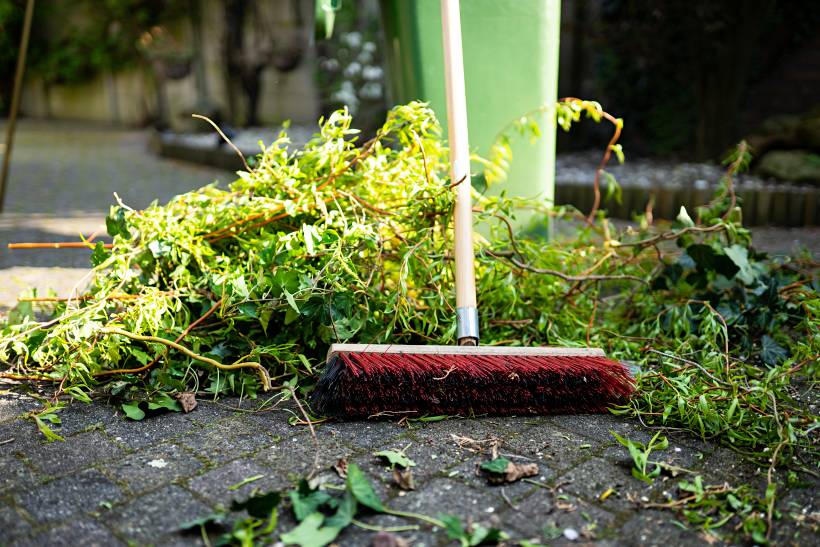 A pile of garden waste waiting for disposal (Source: iStock)
A pile of garden waste waiting for disposal (Source: iStock)
If you need guidance regarding what to do about rats in the garden, you can start with the following steps:
Eliminating food sources
This entails picking up fallen fruits, rat-proofing your crops, and throwing away rotting food. You should also perform the following tasks:
Choose a metal bird feeder instead of a plastic one so it cannot be gnawed at.
Cover or fix water sources, such as faucets and pipes.
Check every nook and cranny to ensure that no food source remains.
Reducing shelter opportunities
Tidy up your whole garden so rats won’t have the opportunity to be comfortable and seek shelter on your property. In this regard, you can dispose of plant litter and other trash, prune overgrown vegetation, mow your lawn, and seal all entry points, such as fence walls and doors.
Having regular garden inspections
You can perform regular rodent inspections in your garden to stave off future rat infestations. This involves checking possible nesting sites, food and water sources, holes and other points of entry, and signs of rodent activity or presence (bites and poop, for instance).
Because these intelligent creatures try to avoid open areas, you should also examine places where they are likely to hide, such as sheds, corners, trash bins, and piles of rubbish.
The best season to perform a rodent inspection is winter; due to the cold, they may seek shelter and warmth in your home and garden.
Teaming up with neighbours
All your efforts to keep rats away from your property may be in vain if the rest of your neighbourhood is teeming with them. Hence, it is essential to treat it as a community problem, with neighbours working hand in hand to prevent a rodent invasion.
Disseminating helpful information—like the importance of maintaining a clean environment, covering possible entry points for rats, and performing regular inspections—is a good way to preserve a healthy and safe neighbourhood.
Keep your garden pest-free with Airtasker
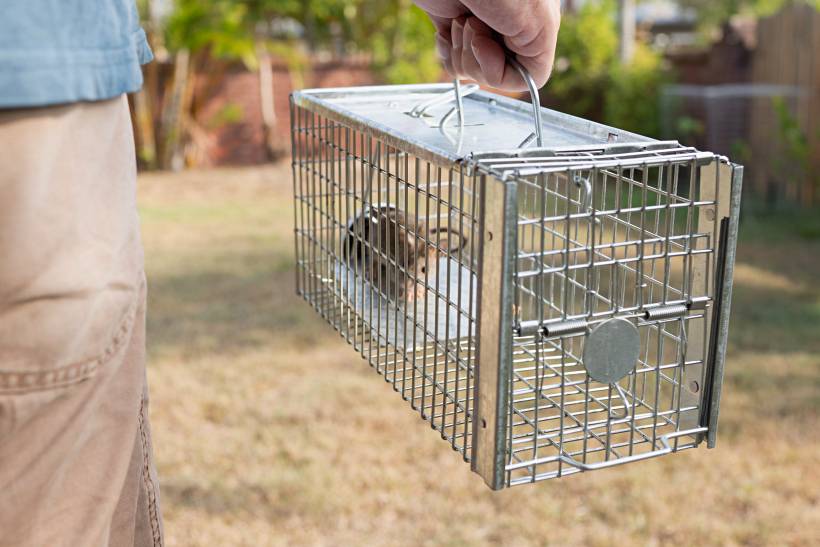 A pest control expert removing a rat from a garden (Source: iStock)
A pest control expert removing a rat from a garden (Source: iStock)
Do you have sneaky rats taking over your garden? The pest controllers at Airtasker can help you get rid of these uninvited guests.
The simple and quick process begins with clicking the ‘Post a task’ button and writing down all the relevant details, including your budget, location, and preferred time and date of operation. After getting offers from different pest controllers, you can choose the expert who best fits the bill.
FAQs on garden rats
It is rare for these types of rodents to live in the same garden since they are both territorial and will be competing for resources like food and water.
Yes, you can shoot pests (with an air rifle) in your own garden. However, don’t forget to take all the necessary precautions. You should also inform your neighbours since they might get alarmed after hearing gunshots coming from your property.
Yes. Since landlords must keep their rental properties habitable and safe, they should also tackle problems involving rats and other pests.
Find pest control, fast
Find a Pest Control specialist
Related articles
Related price guides

